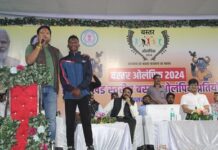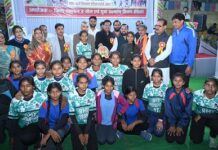The five-member bench of the Supreme Court of India on Thursday will hear a batch of petitions over the Islamic practice of triple talaq, nikal halala and polygamy in Islam. Interestingly, the five-member bench comprises of judges belongs to different religions -Sikh, Christian, Hindu, Muslim and Parsi. All the judges are officially on a summer break.
The bench is led by Chief Justice of India JS Khekar (the first Sikh to hold the post). Other four judges are Justice Kurian Joseph (Christian), Justice Uday Lalit (Hindu), Justice Abdul Nazeer (Muslim) and Justice Rohinton Fali Nariman (Parsi). The bench will hear in all seven petitions including the lead petition titled as ‘Quest for equality vs Jamiat Ulama-i-Hind’. The six other petitions are filed by Aafreen Rehman, Gulshan Parveen, Atiya Sabri, Shayara Bano, Ishrat Jahan and Khuran Sunnath Society.
The hearings will also be assisted by Attorney-General Mukul Rohatgi who will examine the limitations of court in the Muslim personal laws if there is any violation of the fundamental rights of citizens enshrined in the constitution. The court had on its own taken notice regarding gender discrimination faced by women in the event of divorce or other marriages of their husband.
The Allahabad High Court in its verdict pronounced in April stated that the practice of triple talaq is unilateral and bad in law. The verdict came while hearing a petition filed by a person named Aaqil Jamal whose wife had filed a complaint against him alleging that she was being tortured for dowry and when she couldn’t fulfill his demands he gave her triple talaq.
Anti-triple talaq activists including the Joint Movement Committee from West Bengal on Tuesday that it has faith in the law and the verdict will be in their favour. While replying to the committee’s request, the Muslim Personal Law Board stated that the committee is just an NGO and holds no right to comment on behalf of the entire Muslim committee. However, All India Muslim Personal Law Board Vice-President and Jamaat-e-Islami Chief Sayed Jalaluddin Umri had commented that the triple talaq dispute is unnecessary and Muslims should follow the Sharia law in regards to marriage, divorce and Nafqa.
Recently, Prime Minister Narendra Modi had urged Muslims to not politicise the issue of triple talaq and also said that the efforts to resolve the issue would be led by ‘enlightened’ members of the Muslim community















